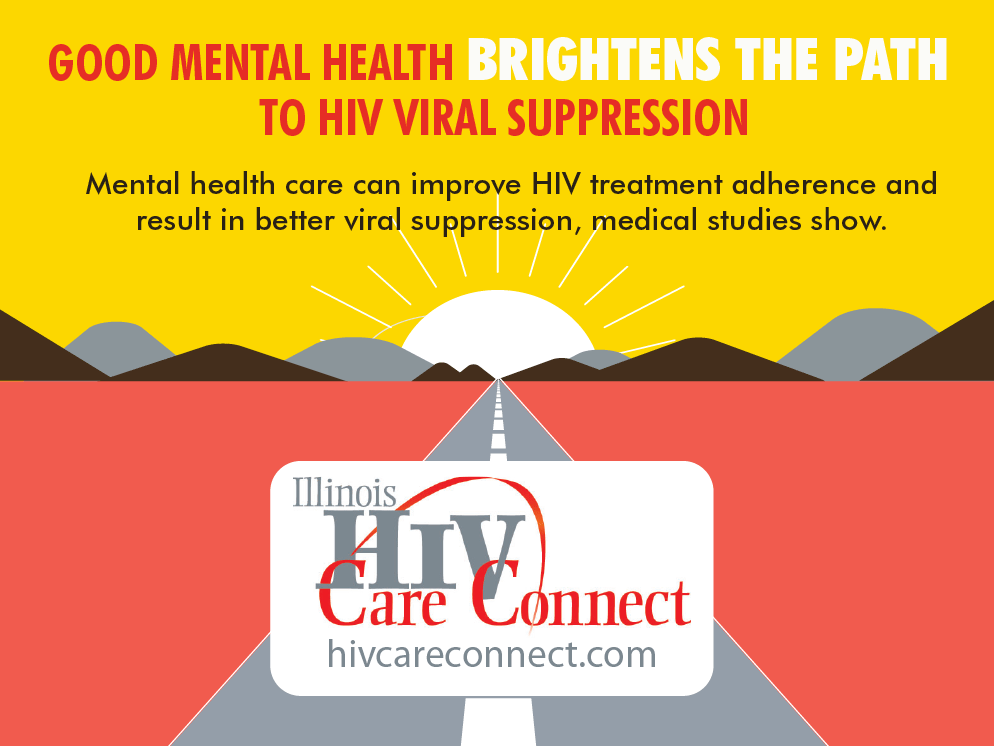Your mental health is just as important as your physical health. As a person living with HIV, you must focus on eating right, taking care of yourself physically, and adhering to your medication regimen. A mental health problem can affect the way you think, feel and behave, and can change how well you take care of yourself. For example, a change in your mental health status can:
- Make it harder for you to take all your HIV medicines on time and achieve viral suppression.
- Make it more difficult for you to keep your health care appointments or stay in touch with your support network.
- Interfere with your healthy behaviors, such as getting enough sleep and exercise.
- Impair your ability to cope with the stresses of daily life.
It’s normal to experience some degree of worrying or fear, particularly after you have been diagnosed with HIV. You can better manage your emotions, overall health and well-being if you know how having HIV can affect your mental health and what resources are available to help you if you need it.
Living with HIV can sometimes be overwhelming. The most important thing to remember is that you are not alone; there are support systems in place to help you, including doctors, psychiatrists, case managers, family members, friends, support groups, and services including Illinois HIV Care Connect.
How do I know if I’m mentally healthy?
Simply stated, mentally healthy individuals tend to be happy and productive people. While we all go through ups and downs, mentally healthy people can handle stress reasonably well, make good choices, work productively, have positive personal relationships, and make meaningful contributions to their families and communities.
Individuals developing mental health conditions may begin to notice changes in how they feel, or others may notice significant changes, such as:
- No longer finding enjoyment in pleasurable activities.
- Sleeping too much—or being unable to sleep.
- Feeling “sad” or “empty” much of the time.
- Feeling tired all the time.
- Experiencing sudden and repeated attacks of fear known as “panic attacks.”
- Loss of sexual interest.
- Worrying what others are thinking about them.
- Hearing voices.
- Feelings of wanting to hurt themselves or others.
- Intense anger or rage toward others.
Don’t be embarrassed to talk about your feelings with your doctor, case manager, or other health care team members. Your feelings are important and valid, and these health care professionals should be concerned about you and respect you. Always remember that mental health conditions are treatable. People who experience mental health problems can get better and many recover completely.
Help in an emergency:
If you are experiencing emotional distress and have suicidal thoughts, call the National Suicide Prevention Lifeline at
1-800-273-TALK (8255).
Help in a non-urgent situation:
If you feel you are experiencing the symptoms of a mental health condition, schedule a time to discuss your feelings with your health care provider or Illinois HIV Care Connect case manager. If you are not yet enrolled in Illinois HIV Care Connect, you may enroll through seven different regional offices.
Learn more about viral suppression – the key to living healthy with HIV



